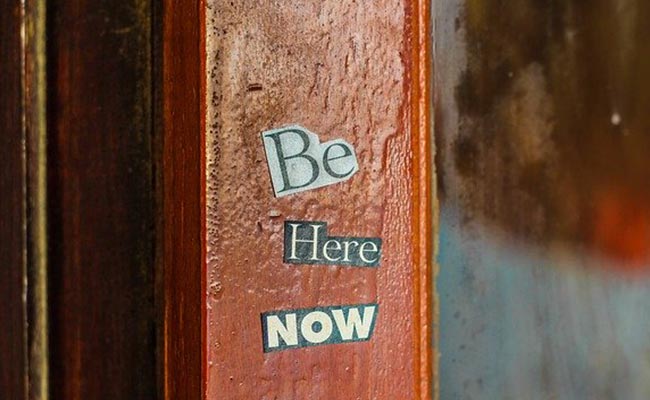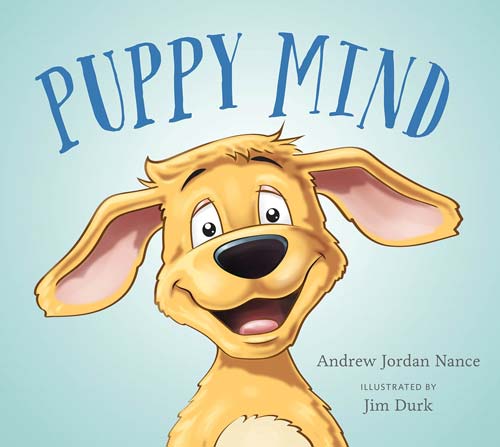
Mindfulness is simply the practice of being fully present. This means paying attention to what is happening in the now, and not being pulled backwards into thoughts of the past, or forwards into speculation of the future.
A state of mindfulness is conducive to our wellbeing because when we are present we become free of stress, worry and anxiety.
We can all access a state of mindfulness by simply engaging in something we enjoy.
Most of us have a hobby we love, something that takes us away from the hustle and bustle and stress of everyday life: Some play golf, some play an instrument, some do yoga or go for a run.
These activities have our minds focussed fully on what we are doing.
We are absorbed in the moment, be it paying attention to that golf swing, making sure we hit the correct notes on the guitar, or leaning into that yoga stretch and feeling the tension release – these things have us fully rooted in the present moment.
In these moments we forget about the bills, the tyre that needs changing on the car, the problems at work, the wrinkles around our eyes, the relationship that ruined the previous year. We are living fully in the now.
And the Power of Now makes us feel alive, happy, and free.
It's a beautiful thing.
Doing Mindfulness Exercises
A mindfulness exercise is simply any activity that cultivates a state of mindfulness. It could be as simple as sitting down and watching the sun set.
So, contrary to popular belief, you don't need to practice meditation to engage in mindfulness, though it is a great daily tool you can use to cultivate mindfulness and improve your mental health.
There are numerous mindfulness exercises you can partake in to help your mind move into the present moment. I have 6 listed here, and have a book you can download too.
Mindfulness is clinically proven to help with stress, depression, and even disease and pain management.
For this reason, many companies offer a mindfulness program (usually Mindfulness Based Stress Reduction) to their employees to promote better mental health – Google, Apple, Nike, even Goldman Sachs- which in turn boosts employee productivity and happiness:

You can meditate or just sit among nature awhile. Let go of the frantic thought stream that pulls your mind around every day. That's mindfulness.
Why Is Mindfulness Important?
It is easy to rush through life and miss it, literally. The days fly by in a sea of routine and everything feels like it is on autopilot.
We're moving around but losing touch with the mind and body, our understanding of who we really are and the feelings, thoughts and emotions consuming us.
The mind is continually fretting about being on time, paying bills, career progression, investments, making sure the kids do x,y,z, what other people thing of this and that.
We become robot-like, living out the same routine and the same obsessive thoughts in a perpetual cycle.
This makes us stressed and anxious and often sleepless.
Mindfulness helps us learn to let go of these thoughts by stopping and becoming fully aware of where we are, what surrounds us, what our thoughts and actions represent and what really matters.
Mindfulness gives us a mental dusting down and frees us from the prison of the monkey mind.
Becoming more aware of the present moment can help us enjoy the world more and better understand ourselves.
It helps us make sense of our thoughts, feelings, and emotions.
When we become more aware of the present moment, we begin to appreciate things we often take for granted: our health, family, friends, food, nature and all the small blessings that make up our daily life experience.

Mindfulness is all of these things: Observe, accept, breathe, feel, be aware, be here.
Better Mental Health
Mindfulness helps us identify unhelpful thought processes, to see how becoming entangled in them can lead to negative thinking and self-limiting behaviors.
Gradually, we can train ourselves to notice when our thoughts are taking over causing us negativity. We realize that thoughts are simply ‘mental events' that do not have to control us.
Most of us have issues rooted in past experiences that we find hard to let go of. Mindfulness can help us confront these thoughts and objectively observe them with a present mind and create a new perspective that enables us to positively move forward.
When it comes right down to it, wherever you go, there you are. Whatever you wind up doing, that’s what you’ve wound up doing. Whatever you are thinking about right now, that’s what’s on your mind ~ Jon Kabat-Zinn
How to Start Practicing Mindfulness Now
Because there are now so many mindfulness training programs and courses to take, even seminars and conventions, to an outsider mindfulness may seem like some kind of skill, project, or hobby you need to embark on and put a lot of effort into.
The truth is that it's incredibly simple and is something that you already have at your disposal.
You can start practicing mindfulness right now by simply stopping what you're doing and noticing the sounds in your immediate environment: the sensations in your body, or the thoughts floating around your mind.
Just observe them without judgement, identifying them for exactly what they are. Realize yourself in this moment, right now.
This may seem like a very basic thing to do, but is incredibly powerful. You will be overcome with the sensation of really being here; being alive and existing.
You can take this a step further by deep breathing for a couple of minutes. Focus on your breath going in and out of your body, identifying what it represents, which is essentially your life force.
Breath is the bridge which connects life to consciousness, which unites your body to your thoughts. Whenever your mind becomes scattered, use your breath as the means to take hold of your mind again. ~
You can incorporate mindfulness into your life immediately.
You might choose to start taking a walk each day, even if it's only for five minutes around the block or in a local park.
Just being outside and noticing the world – the trees, the birds singing, flowers in bloom, people walking past, dogs running around – is mindfulness.
Even taking time out to look around as you travel to work, I guarantee you will notice things that you have never noticed before because your mind is normally caught up in thoughts of…
- whether or not you're going to get stuck in traffic
- whether or not the train is going to be delayed
- what you're going to have for dinner
- whether or not you're going to make it to the gym
- whether that deal you've been working on is going to go through …. the list goes on.

Take a walk in nature.
Mindfulness manifests itself in so many different wonderful ways.
It could just be that you take time out today to stop everything you're doing and tell your partner and kids that you are taking 10 minutes for yourself, and then go and call an old friend you haven't spoken to in ages.
It could be that you go out into the garden and cut the grass and dig a few beds, something you've been telling yourself you will get around to doing for the past year.
It might even be that you brew a fresh pot of tea and sit down for 20 minutes in absolute silence and just be alone with yourself.
Again, this sounds incredibly simple but it is so incredibly powerful in an age where we feel compelled to fill every single minute of the day with brain-stimulating activity.
In short, we have become addicted to constantly consuming.
Whether it's media consumption of TV, radio, streaming services, and social media channels, or consuming through the purchase of material goods and food, we are always looking for the next dopamine fix.
And when we do pause for a moment, our brains automatically tell us to reach for our phone and check if we have any new messages, or to browse Instagram or Facebook for updates about other people's live, many of whom we have very little personal connection to.
The mind is never centred. It is constantly being pulled in different directions and influenced by so many different opinions, choices, and gossip.
In a nutshell: if you run a car at 8,000 revs every day, constantly pushing it to its limits, eventually something in the engine breaks down, or more than one thing breaks down and you have multiple problems.
Your mind is a complex engine and, while it is capable of being pushed, you also need to look after it. It needs care and attention to ensure longevity.
But not just that. Your mind needs care and attention to perform at its optimal potential: to be positive, to make good decisions, to manage stress, anxiety and other emotions such as anger in the best possible way.
Mindfulness, In Summary
- Mindfulness is to be fully present and aware of where you are and what you're doing, and not being overly reactive or overwhelmed by what’s going on around you.
- Anyone can do it. You don't need a qualification or specific skill.
- You don't need to change who you are, though mindfulness will naturally spark a journey of self-evolution.
- It shouldn't be difficult. Mindfulness is an excellent way of coping with stress and difficult emotions.
- You don't need to meditate. Meditation is synonymous with mindfulness, but you don't need to meditate in the traditional sense if you don't want to. If you do, start by reading this post.
- You can create your own mindfulness practices. Start by simply setting aside 10 minutes a day to stretch, walk a while, sit and breathe deeply, or whatever brings your mind into the present moment and frees you from the pressures and worries you feel in your everyday life.
- Mindfulness integrates with your life and eventually becomes a way of living. Small, daily practices sow seeds for profound life change.
- With a regular mindfulness practice you will feel more content in your own skin, calmer, more energetic, more appreciative, more passionate about the things and people you love, and generally more mentally fit.
Mindfulness practice means that we commit fully in each moment to be present; inviting ourselves to interface with this moment in full awareness, with the intention to embody as best we can an orientation of calmness, mindfulness, and equanimity right here and right now.





Tim Roland says
I practice mindfulness by being conscious of my thoughts. I don’t just observe my thoughts though, I process them as well, I question whether they benefit me, or if they are of detriment to me – I always think twice – if of benefit to me I happily react to, if of detriment to me I reject/ignore, I never react negatively to negative stimuli, it would be illogical for me to right? Consciously choosing to be sad would be masochistic yes? I’ve been practicing mindfulness this way for over six years, and I now consider I’ve mastered it. I find I’m happier, I’ve minimised the influence my environment has over me, and I am in control of me.
Joe Enright says
Thank you Tim. I needed this today. You have shared exactly what I want to achieve.
Best,
Joe